Everything You Need to Know About: Morocco
Signed up to trek through the Moroccan High Atlas this summer and keen to learn more about the country? We’ve got you covered with our need-to-know Morocco guide!
Morocco
A Brief History
The Kingdom of Morocco is a constitutional monarchy, the current King is Mohammed VI. The capital city is Rabat, and Casablanca, Fez and Marrakech are arguably more famous and more popular with tourists. The earliest known independent state, the Berber kingdom of Mauretania dates back to around 40BC. The country has a rich cultural heritage, and Islamic, Arabic and Jewish influence dominate the modern cultural landscape. The early to mid 1900s saw the colonisation of Morocco by the French and Spanish, and their influence remain in the country today.
Culture
Islam is the country’s predominant religion. Morocco is quite conservative so dressing appropriately is encouraged. This includes covered shoulders and knees. Tipping is local custom so be prepared to tip after meals and tip guides who show you attractions in Marrakech. Haggling in the souks and markets is expected and all part of the experience! Drug laws are very strict.
Language
The official languages of Morocco are Arabic and Berber, though English and French are widely spoken in tourist areas.
Here are a few basic Arabic phrases you may whilst you’re trekking:
Salam Alikome - Hello (Peace be with you)
Choukran - Thank you
La Choukran - No Thank You
Money Matters
The currency is the Moroccan Dirham. The Dirham is a closed currency, so you are unable to get it whilst you’re in the UK. There are many ATMs in Marrakech, though they can be slightly hit and miss, so it is worth changing money up at a Bureau de Change to be on the safe side.
The Food
For our full breakdown on Moroccan cuisine, check out our Guide to Moroccan Food! Moroccan food is delicious, and you can spend hours eating. It’s tradition to start your meal by sharing lots of small bowls of vegetables and salads and khubz (flat bread). This will often be followed by tagine and cous cous. There are plenty of vegetarian, vegan and meat options available.
Electrical Items
You will need a round two pin adapter for charging electrical items in Morocco.
Marrakech
Our participants all have a short amount of time to spend in one of Morocco’s most exciting cities, Marrakech.
Things to Do
No trip to Marrakech is complete without a journey into the souks to do some shopping. Make sure you haggle - it’s all part of the fun! The Secret Garden is the perfect place to stop to take a breather from the joyful chaos of the souks. Home to one of the highest towers in the media, you can climb to the top and get panoramic views of Marrakech and the surrounding High Atlas mountains.
The Jardin Majorelle is also a beautiful place to stop on the new side of town. It’s a beautiful botanical garden that is home to several museums and is the final resting place of designer Yves Saint Laurent.
Food
Marrakech has a wonderful food scene, with plenty of traditional Moroccan restaurants mixed in with more modern French or European fare. Cafe Zaza, in the heart of the souk, is known for it’s delicious, affordable tagines, whilst the slightly more modern Cafe Arabe or Nomad offer Moroccan food with a European twist. If you’re looking for a break from the busy streets Cafe Des Epices has great views across the souk and is a great place to stop for a drink. The square at Jemaa el-Fnaa has many different outposts selling delicious fresh orange juice for as little as 4 Dirhams.
Accommodation
There are plenty of riads and hotels in the city. Our participants stay in a centrally located riad. A riad is a traditional Moroccan house that has an interior garden - the perfect spot to sit and eat your breakfast in the morning!
The High Atlas Mountains
Mountain History
Accommodation
On the trek you will be staying at designated camping areas on the mountain. You will have good quality three-person tents on a twin share basis so there will be plenty of room for all of your kit. There will also be a kitchen and dining tent and (extremely) basic toilet huts near the camping areas. There are no washing facilities at the campsites but the staff will provide bowls of hot water daily for washing.
Guides
Whilst climbing to Toubkal, you will have a group of guides and porters with you the whole way. They are your mountain family! The group of guides is made up of one head guide who's in charge, and one guide who is the leader at the front of the group, setting the pace. Your porters carry all your heavy trekking gear, tents, cooking supplies and water up the mountain. Despite this, they are often racing ahead of you to have the next camp ready. Whilst all your guides will speak English, the local language is Arabic.
Phone Reception
There's very little mobile signal in the High Atlas, although you may get access in some of the Berber villages when you stop for the night. What you should also keep in mind is your mobile provider's roaming charges. We advise you to check with your phone operator before you go to find out what your roaming charges will be in Morocco.
Food
The time you spend in your dining tents will form part of your fondest memories. It's a chance to relax after your long, hard day of trekking, but also it's a chance to spend some time with your team, when you're not focussing on climbing the highest mountain in North Africa. Most of the food is Moroccan (think lots of tagines!) but there will also be some pasta and other Western food.




